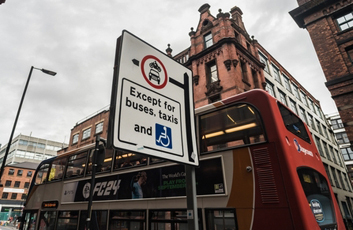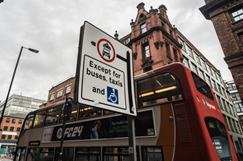The implementation of digital traffic regulation orders (D-TROs) is likely to be delayed because the election will put back the necessary secondary legislation, a government official has said.
TROs are legal documents that restrict or prohibit the use of the highway network, in line with The Road Traffic Regulation Act 1984. D-TROs are provided for in the Automated Vehicles Act, which became law last week, but depend on statutory regulations.
Speaking at Traffex, John Cooper, a senior engineer at the Department for Transport, said that with the data specification due by the end of this week, ‘we intend to proceed with everything in the project as per the original plan'.
He added, however: ‘We just will be delayed in making the statutory regulations because of the suspension of Parliament.
‘That will in turn inevitably have an impact on the eventual roll-out dates, which was anticipated to be July 2025. It will inevitably be later than that now because the regulations won't be made as quickly as we'd imagined them to be.'

Mr Cooper was speaking at a Traffex session chaired by Max Sugarman, chief executive of Intelligent Transport Systems UK (ITS UK).
Mr Sugarman told Highways: ‘It is great that the new Automated Vehicles Act sets out the pathway for the digitalisation of traffic regulation orders – something that will have a profound and beneficial impact on how we use our road network.
‘It is crucial that following 4 July, whichever party is in, the Government speedily gets behind this policy and supports the continued digitalisation of our transport system.'
Simon Morgan, executive chairman of Buchanan Computing, told Highways that although it was inevitable that the election would delay the necessary secondary legislation, ‘there is nothing to stop civil servants continuing to prepare draft documents for consideration by new ministers after the election, particularly for measures such as this that received cross-party support'.
‘Once these have been approved by new ministers, there will need to be a public consultation, and a regulatory impact assessment to determine the potential cost to local authorities.'
He added: ‘The target date of mid-2025 for the initial go-live of D-TRO for newly-made orders always seemed ambitious, particularly as it was known there would need to be an election between now and then. It seems likely that this date will now be put back a little, perhaps to autumn next year.'































